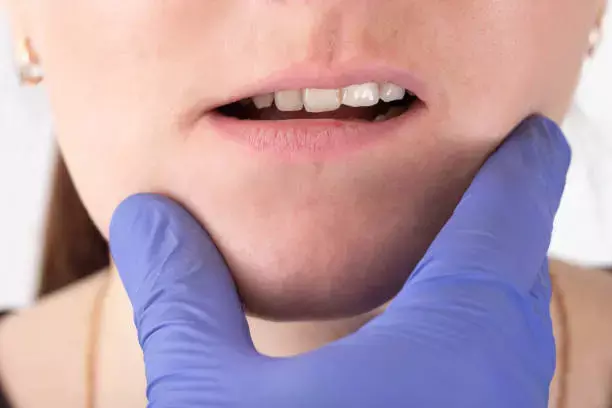- Home
- Medical news & Guidelines
- Anesthesiology
- Cardiology and CTVS
- Critical Care
- Dentistry
- Dermatology
- Diabetes and Endocrinology
- ENT
- Gastroenterology
- Medicine
- Nephrology
- Neurology
- Obstretics-Gynaecology
- Oncology
- Ophthalmology
- Orthopaedics
- Pediatrics-Neonatology
- Psychiatry
- Pulmonology
- Radiology
- Surgery
- Urology
- Laboratory Medicine
- Diet
- Nursing
- Paramedical
- Physiotherapy
- Health news
- Fact Check
- Bone Health Fact Check
- Brain Health Fact Check
- Cancer Related Fact Check
- Child Care Fact Check
- Dental and oral health fact check
- Diabetes and metabolic health fact check
- Diet and Nutrition Fact Check
- Eye and ENT Care Fact Check
- Fitness fact check
- Gut health fact check
- Heart health fact check
- Kidney health fact check
- Medical education fact check
- Men's health fact check
- Respiratory fact check
- Skin and hair care fact check
- Vaccine and Immunization fact check
- Women's health fact check
- AYUSH
- State News
- Andaman and Nicobar Islands
- Andhra Pradesh
- Arunachal Pradesh
- Assam
- Bihar
- Chandigarh
- Chattisgarh
- Dadra and Nagar Haveli
- Daman and Diu
- Delhi
- Goa
- Gujarat
- Haryana
- Himachal Pradesh
- Jammu & Kashmir
- Jharkhand
- Karnataka
- Kerala
- Ladakh
- Lakshadweep
- Madhya Pradesh
- Maharashtra
- Manipur
- Meghalaya
- Mizoram
- Nagaland
- Odisha
- Puducherry
- Punjab
- Rajasthan
- Sikkim
- Tamil Nadu
- Telangana
- Tripura
- Uttar Pradesh
- Uttrakhand
- West Bengal
- Medical Education
- Industry
Malocclusion does not impact presence of bruxism nor TMD complaints in adulthood: Study

Malocclusion does not impact the presence of bruxism nor temporomandibular disorder (TMD) complaints in adulthood, suggests a study published in the Journal of Dentistry.
A group of researchers conducted a study to explore the association between occlusal features and temporomandibular disorder (TMD) pain complaints and probable awake or sleep bruxism.
Path analysis was used to estimate direct, indirect and total effects of occlusal features on probable bruxism and pain-related TMD in adults aged 31 years from the 1982 Pelotas Birth Cohort. A total of 539 cohort members had an oral examination in 2013. Occlusal features were assessed through the Dental Aesthetic Index (DAI), orofacial pain complaints through the TMD pain screener and probable bruxism based on self-reports in combination with clinical findings.
The results of the study are as follows:
· Malocclusions were found in 28.8% of the participants, while awake bruxism was reported in 35.2%, sleep bruxism in 15.2%, and pain-related TMD in 52.5% of the sample. The occlusion had no direct effect on either awake bruxism or pain-related TMD.
· Conversely, probable awake bruxism was associated with pain-related temporomandibular disorder (TMD). Similar results were found when sleep bruxism was set as the mediator of interest, as malocclusion did not directly affect sleep bruxism nor pain-related TMD.
· A direct effect of sleep bruxism on pain-related TMD was observed with an SC of 0.16
Thus, the researchers concluded that malocclusion during adulthood did not directly influence probable awake or sleep bruxism nor temporomandibular disorder (TMD) pain complaints. Instead, probable awake and sleep bruxism was associated with temporomandibular disorder (TMD) pain complaints.
Therefore significance of malocclusion should be reconsidered in contemporary dentistry and oral rehabilitation.
Reference:
Role of occlusal factors on probable bruxism and orofacial pain: Data from the 1982 Pelotas birth cohort study by Boscato N et. al published in the Journal of Dentistry.
Dr. Shravani Dali has completed her BDS from Pravara institute of medical sciences, loni. Following which she extensively worked in the healthcare sector for 2+ years. She has been actively involved in writing blogs in field of health and wellness. Currently she is pursuing her Masters of public health-health administration from Tata institute of social sciences. She can be contacted at editorial@medicaldialogues.in.
Dr Kamal Kant Kohli-MBBS, DTCD- a chest specialist with more than 30 years of practice and a flair for writing clinical articles, Dr Kamal Kant Kohli joined Medical Dialogues as a Chief Editor of Medical News. Besides writing articles, as an editor, he proofreads and verifies all the medical content published on Medical Dialogues including those coming from journals, studies,medical conferences,guidelines etc. Email: drkohli@medicaldialogues.in. Contact no. 011-43720751


